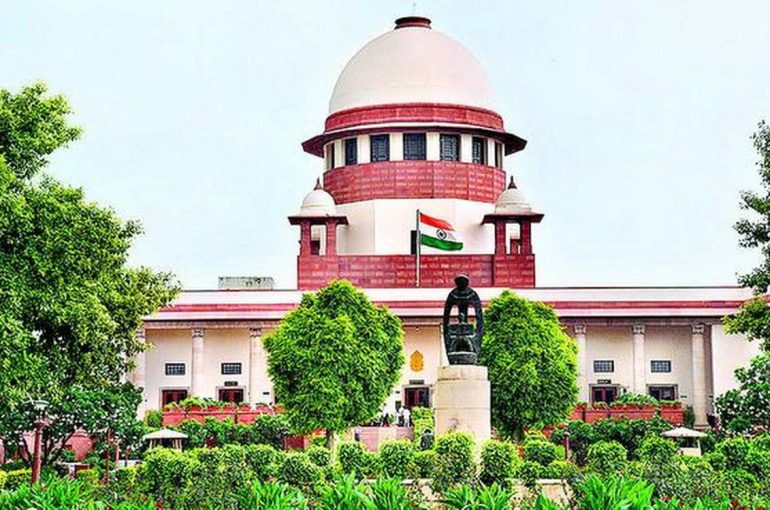MV ACT | SUPREME COURT RULES PRIVATE BUS OPERATORS CANNOT PLY ON INTER-STATE ROUTES OVERLAPPING WITH NOTIFIED STATE TRANSPORT ROUTES

Introduction
The Two Judge Bench of Supreme Court comprising Justices Dipankar Datta and Augustine George Masih, in the case titled U.P. State Road Transport Corporation Through Its Chief General Manager Vs. Kashmiri Lal Batra & Ors. (Civil Appeal No.10522 of 2025) addressed a significant controversy surrounding the grant and countersignature of stage carriage permits for inter-State bus routes overlapping notified intra-State routes, under the Motor Vehicles Act, 1988. Multiple appeals and writ petitions, primarily involving the U.P. State Road Transport Corporation (UPSRTC) and private permit holders, raised core legal questions about the respective rights and limitations of state undertakings and private operators when inter-State agreements clash with notified nationalization schemes.
Factual Background
The dispute traces its origin to the execution of an inter-State Reciprocal Transport Agreement (IS-RT Agreement) on November 21, 2006, between the State Transport Authorities (STAs) of Madhya Pradesh (MP) and Uttar Pradesh (UP), as empowered under Section 88 of the Motor Vehicles Act, 1988. The Agreement segregated specific inter-State routes: Schedule A allowed private operators, while Schedule B was reserved exclusively for the Madhya Pradesh State Road Transport Corporation (MPSRTC).
Following the alleged winding up of the MPSRTC, routes in Schedule B ceased to be serviced by the MP undertaking and under Clause 43 of the IS-RT Agreement, were deemed included in Schedule A. Private Operators, claiming entitlement based on this inclusion, obtained permits from the STA, MP. However, the STA, UP refused to countersign these permits, effectively preventing private operators from plying on the relevant inter-State routes that overlapped portions of intra-State notified routes in UP.
Aggrieved individuals approached the High Court for directions, either seeking mandamus to compel the STA, UP to countersign the permits or challenging the denial of operational rights even when permits had been duly granted for inter-State transit. The High Court issued directions for the grant and countersignature of permanent permits for such converted routes. These decisions were challenged before the Supreme Court through appeals by the UPSRTC and other state authorities, as well as by private operators seeking similar relief in connected writ petitions.
Court’s Decision and Analysis
The Supreme Court distilled the principal legal issue: whether a stage carriage permit can be granted to a private operator under an IS-RT Agreement for an inter-State route, when a part of that route overlaps a notified intra-State route reserved for the state undertaking. In its extensive analysis, the Court examined the interplay between the IS-RT Agreement under Chapter V (Section 88) and notified schemes under Chapter VI of the 1988 Act.
The Court reiterated settled legal doctrine that an IS-RT Agreement, being an executive arrangement between States, does not have the force of law and stands subordinate to notified schemes under Chapter VI. It invoked a host of judicial decisions, including Judgments by larger and Constitution Benches, which maintain that private operators are completely excluded from traversing notified routes unless express exceptions are made in the scheme itself. Additionally, an IS-RT Agreement cannot override or supersede a lawfully notified, Central Government–approved scheme.
The Judgment cautioned, however, that the rigid application of this principle could adversely impact public interest if procedural rigour or bureaucratic inertia stalled modifications or consensus-building between States. The Court lamented the lack of constructive policy effort from the relevant State authorities, highlighting that such disputes ultimately compromise passenger convenience and the broader public good.
Conclusion
The Supreme Court set aside the impugned High Court orders and dismissed the Writ Petitions favouring private operators, holding firmly to the primacy of nationalization schemes under Chapter VI over IS-RT Agreements. Nevertheless, it urged the authorities of both States to reconvene and consider whether, upon proper proof that the MPSRTC has indeed ceased to exist, the concerned routes could be justly opened up to private operators, subject to necessary scheme modifications and mutual agreement. The Judgment thus balanced legal orthodoxy with practical equity, mandating compliance with statutory provisions while also advocating future dialogue and policy coordination to ensure optimal service to the public.
YASH HARI DIXIT
LEGAL ASSOCIATE
THE INDIAN LAWYER AND ALLIED SERVICES
Please log onto our YouTube channel, The Indian Lawyer Legal Tips, to learn about various aspects of the law. Our latest Video, titled “Startup Funding Laws in India Explained | Legal Guide by Advocate Sushila Ram Varma|” can be viewed at the link below:





































Leave a Reply